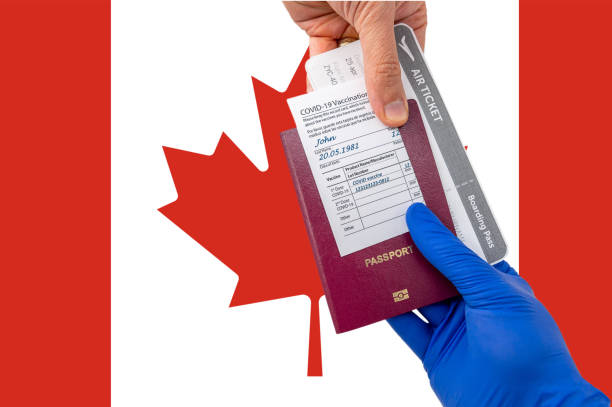Top 9 IT Jobs in Canada with Visa Sponsorship
When you hear about jobs in Canada with visa sponsorship, think of two things only; the job registered in NOC and the employer will help you to get the LMAI documents.
Aside from this, no company in Canada will undertake your visa application process 100% to bring you to Canada.
If you’re looking for IT Jobs in Canada with Visa Sponsorship, then you’re rightly looking for companies that can help you obtain LMIA.
I talked about LMIA in other articles. This article will digress a bit into the IT profession in Canada and list of companies that’ll help you in the visa-acquiring process.
Are IT Jobs in Demand in Canada
A report by ICTC predicts that Canada will require over 300,000 skilled IT workers by 2023.

With such demand, Canada is looking abroad for talent, with expats in the tech sector rising from 26% to 37% between 2009 and 2019.
This openness is reflected in rising wages, with Toronto IT specialists earning an average of USD 109,000 per year, according to a report by the Hired agency.
Toronto saw the fastest salary growth among all tech hubs, increasing by 10% year on year.
This wage growth adds pressure on startups, which often require a large number of IT-skilled employees.
9 IT Jobs in Canada with Visa Sponsorship
The most sought-after roles include:
- Software Developer,
- Data Scientist,
- Data Analyst,
- UX/UI Designer,
- Full Stack Developer,
- Cyber Security Analyst,
- DevOps Engineer, and
- Machine Learning Engineer.
#1. Software Developer (NOC 2174)
Software Developers design, develop, and maintain software applications.
- Technical skills: proficiency in programming languages like Java, Python, or C++, knowledge of databases, problem-solving abilities, familiarity with software development methodologies.
- Average annual salary: CAD 75,000.
#2. Data Scientist (NOC 2172)
In this role, you will break down complex datasets to extract valuable insights and make data-driven decisions.
- Technical skills: expertise in statistics and machine learning, proficiency in programming languages like R or Python, data visualization skills, and knowledge of big data technologies.
- Average annual salary: CAD 90,000.
#3. Data Analyst (NOC 2172)
Data analysts are good at analyzing and interpreting data to help businesses make informed decisions.
- Technical skills: proficiency in SQL and Excel, data cleaning and manipulation skills, statistical analysis abilities, and familiarity with data visualization tools.
- Average annual salary: CAD 65,000.
#4. UX/UI Designer (NOC 5241)
In this role, you will create engaging and visually appealing user interfaces for websites and applications.
- Technical skills: proficiency in design software like Adobe XD or Sketch, knowledge of UX/UI principles, understanding of responsive design, prototyping skills.
- Average annual salary: CAD 70,000.
#5. Full Stack Developer (NOC 2174)
Full Stack Developers are best at both the front-end and back-end development of web applications.
- Technical skills: proficiency in front-end technologies like HTML, CSS, and JavaScript, expertise in back-end frameworks like Node.js or Django, and database management skills.
- Average annual salary: CAD 80,000.
#6. Cyber Security Analyst (NOC 2171)
Cybersecurity personnel protect IT systems and networks from cyber threats by implementing security measures and monitoring for breaches.
- Technical skills: knowledge of network protocols and security standards, experience with penetration testing tools, understanding of cryptography, and incident response skills.
- Average annual salary: CAD 85,000.
#7. DevOps Engineer (NOC 2173)
Your work here is to streamline the deployment processes by automating tasks and improving teamwork between development and operations teams.
- Technical skills: expertise in cloud platforms like AWS or Azure, proficiency in scripting languages like Bash or Python, experience with CI/CD pipelines, and knowledge of containerization tools like Docker.
- Average annual salary: CAD 90,000.
#8. Machine Learning Engineer (NOC 2147)
A machine learning engineer who uses machine learning models to solve business problems and optimize processes.
- Technical skills: strong background in mathematics and statistics, proficiency in programming languages like Python or R, experience with machine learning frameworks like TensorFlow or PyTorch, knowledge of data preprocessing techniques.
- Average annual salary: CAD 100,000.
#9. Systems Analyst (NOC 2171)
As a Systems Analyst, you will analyze IT systems and processes to improve efficiency and meet business objectives.
- Technical skills: proficiency in system modeling and analysis tools, understanding of software development lifecycle, knowledge of database management systems, excellent communication skills.
- Average annual salary: CAD 75,000.
Qualifications to Become an IT Person in Canada
Qualifications and certifications needed for IT jobs in Canada vary depending on the job and employer.
However, some common ones include:
- A bachelor’s degree in computer science, information systems, or related fields.
- Professional certifications like CISSP or CITP may be required.
- Technical skills in programming languages, databases, operating systems, and networking are essential.
- Strong communication skills are important for working with clients and explaining technical concepts.
- Problem-solving skills are crucial for troubleshooting technical issues.
- Relevant work experience, including internships or co-op placements, can be beneficial for landing IT roles.
Companies that Offers Visa Sponsorship to Foreign Employees
Here are some companies known for offering visa sponsorship:
- Shopify
- Amazon
- Microsoft
- IBM
- Accenture
- CGI Group
- Intel
- Ubisoft
- OpenText
Get to see the details of some of the companies listed above.
FAQs
#1. Where can I see job postings from Canada?
There are many ways that you can find legit job postings in Canada. Some of it is on job posting sites like Job Bank, Indeed, Monster, LinkedIn, etc. Another way is by submitting your CV to staffing agencies with a clear description of what you want.
#2. Do I need LMIA to live and work in Canada?
LMIA is a document that approves your coming to Canada for a certain type of job offer. It indicates that you’re the only fit for that role and no one in Canada is willing to undertake such a job.
Conclusion
Canadian employers don’t “sponsor” candidates to work in Canada.
However, they can help bring foreign workers by getting a Labour Market Impact Assessment (LMIA) or sending an electronic job offer (LMIA exempt categories).
Canada wants any Canadian employer who wants to hire a foreign worker to get an LMIA or send an electronic job offer.
Once you get an LMIA, you can use it to apply for a Canadian work permit











